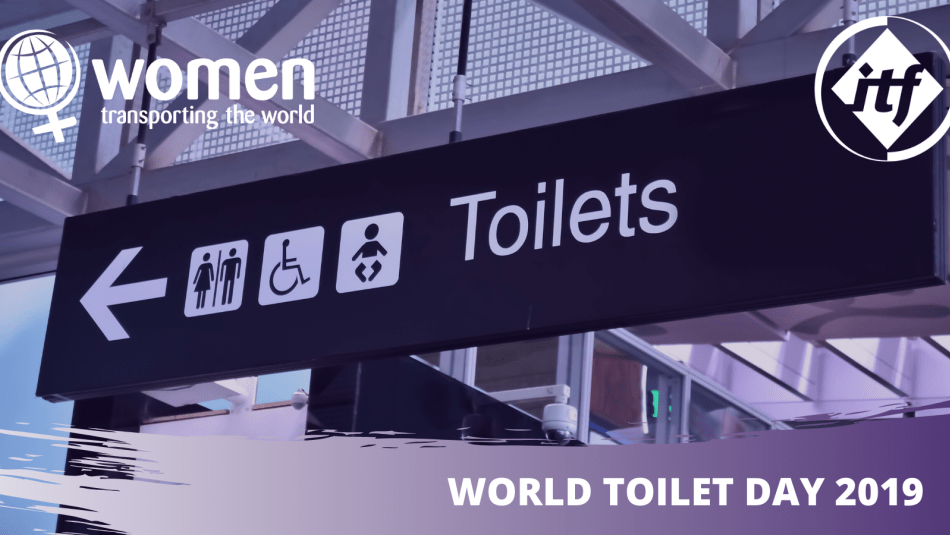
Share
November 19, 2019
TORONTO - On World Toilet Day, November 19 2019, Unifor and the International Transport Workers’ Federation (ITF) are launching a Transport Workers’ Sanitation Charter, because toilet rights are human rights.
“Currently Unifor public transit members are involved in a labour dispute in greater Vancouver and washroom availability is a major issue in the negotiations,” said Unifor National Secretary-Treasurer Lana Payne. “Access to toilet facilities is a matter of basic human dignity for workers yet drivers here and around the world are routinely denied this fundamental right.”
The charter provides guidance on what action should be taken by employers and governments to ensure access to toilets for transport workers, and includes a checklist for workers and their unions to assess current toilet provision.
World Toilet Day is an opportunity to take action to tackle the global sanitation crisis and help achieve UN Sustainable Development Goal (SDG) 6, which promises sanitation for all by 2030.
Access to toilets is particularly challenging for transport workers who are on the move. Across the world, there are stories of awful sanitation conditions that put transport workers lives at risk. This is a particular issue for women transport workers, but improved toilet provisions is a benefit for all.
In Canada every day public transit driver’s deal with this situation while on tight schedules that do not allow time for washroom breaks. Beyond the timeframe, the concern it is also an access issue as facilities are not available at end of the line turnaround points. For drivers in the school bus industry this is also an issue, as most routes do not have chaperones on the bus meaning the drivers cannot leave the bus if a student is onboard. Drivers in long haul trucking also experience problems due to a shortage of accessible parking at rest stops along the highways.
The sanitation charter work has been driven by the ITF’s urban transport unions representing public transport workers. Some of the charter’s demands are:
- access to secure and clean toilets for women and men, which are well lit inside and outside
- ventilated, lockable cubicles
- appropriate hygiene (washing) facilities with clean water
- affordable and appropriate menstrual hygiene products provided
- paid rest breaks for transport workers who should be able to access toilets when they need them during working hours - without delay, and with no loss of income.
“Every trade unionist can use this charter to bargain with the employer,” said Diana Holland, Chair of the ITF women transport workers’ committee. “Every single employer can look at this charter and measure what they’re doing, and we can all use it to influence legislators and introduce laws that protect people around the world.”
Unifor is Canada’s largest union in the private sector, representing 315,000 workers in every major area of the economy. The union advocates for all working people and their rights, fights for equality and social justice in Canada and abroad, and strives to create progressive change for a better future.
The International Transport Workers' Federation (ITF) is a democratic global union federation of 665 transport workers trade unions representing over 18 million workers in 147 countries. The ITF works to improve the lives of transport workers globally, encouraging and organising international solidarity among its network of affiliates. The ITF represents the interests of transport workers' unions in bodies that take decisions affecting jobs, employment conditions and safety in the transport industry.
Media inquiries call Unifor Communications Representative Kathleen O’Keefe at @email or 416-896-3303 (cell).


